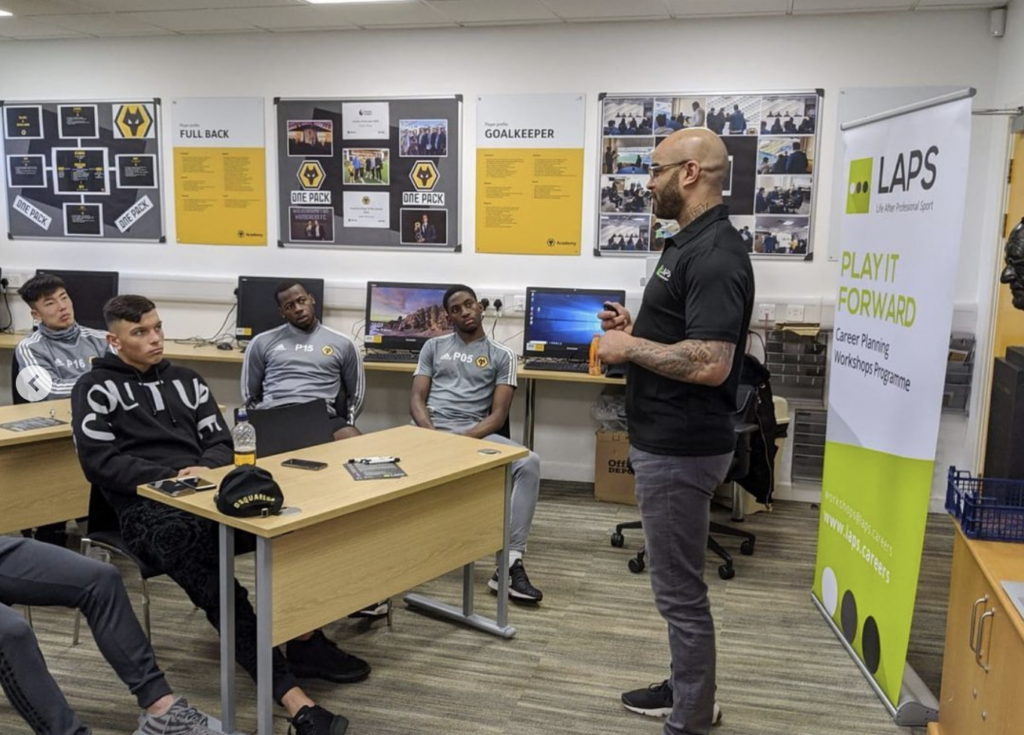From scoring goals to setting people up for their future careers: Robbie Simpson and ‘Life After Professional Sport’
“I think people suffer from depression after retiring from sport because they aren’t sure where to apply that focus.” Those are the words of double Olympic gold medallist James Cracknell. Words that likely resonate across most athletes walking the face of the earth.
Sport is an industry where retirement can happen at any age and because of a multitude of circumstances. You can be an 18-year-old budding footballer who gets released, or you can be in your late thirties, listening to your body tell you it’s time to stop. Regardless of your age, transitioning out of sport into another field is a daunting prospect.
Robbie Simpson is a man who knows this all too well. A footballer who featured for several teams across the English Football League, Simpson found himself without a club in 2013 and wondering what his next step was.
“Just when I think I’m in my peak years, suddenly I’m without a club. I’m going to the gym on my own every day and it dawned on me that this could’ve been the end of my professional football career,” the former Coventry striker told the Sports Gazette.
When he went to the PFA for advice, Simpson was given the go-to response. ‘Have you gotten your coaching badges?’ There was no suggestion of what else he could do away from football. This is despite the fact that the goalscorer held a degree in Sports Science and Mathematics.
He was not the only one in this position. The now Chelmsford City manager recalled finding out that 300 people were also in the same boat. Although he had managed to save money well during his career and boasted the aforementioned degree, the 38-year-old was still feeling the pressure. Which begs the question, how must less equipped people have been feeling?
Simpson described this as a ‘light bulb’ moment. He realized not enough support was out there for athletes in this vulnerable position. Just a few years later, he and co-founder Rob Steed set up ‘LAPS.’ Their mission statement was to help men and women who were in similar situations, looking to find a second career away from sport.

With a free membership, people from all sporting backgrounds can gain access to case studies of former athletes who have made successful transitions. There is also information on what education certain roles that interest athletes might require, as well as a CV builder. LAPS members will also be able to use a specific Job Board that is not available anywhere else. The jobs posted are from companies that LAPS works closely with and are specifically looking for former athletes, thanks to some of their key transferrable skills.
“[An athlete’s] ability to work in a team is pretty huge,” the former frontman explained. “The resilience sports people have shown. They’re also very analytical. We can go on and on with all these desirable skills.
“Sportspeople have these attributes, but a lot of them don’t realize they do. When you speak to them and explain these situations where they showed great leadership or communication skills, you see the light bulb go off in their head too.”
As well as helping people navigate the next phase of their life, the team at LAPS understands the toll that retiring can have on these individuals. In 2018, the Professional Players Federation conducted a survey with former athletes based on how they dealt with retirement. The results showed that 54% of past players have, at some time since retiring, had concerns about their mental and emotional wellbeing. Of those 54%, only 4 in 10 of those had sought help.
“It’s the death of your sporting career. You’ve got the denial; you don’t believe it’s dead. Then there will always be a grieving stage.
“Our job is to help the grieving stage be as short as possible. One side of that is to help people find a new passion and focus to move into. That’s what we believe will really help mental wellbeing.”
Simpson’s words echo that of Cracknell’s at the beginning of this piece. Meanwhile, his work is providing people with opportunities that they may not have realised existed for them. If you are an athlete who is worried about what your future holds, then head over to the Life After Professional Sport website to find out more about what LAPS can do to help you.